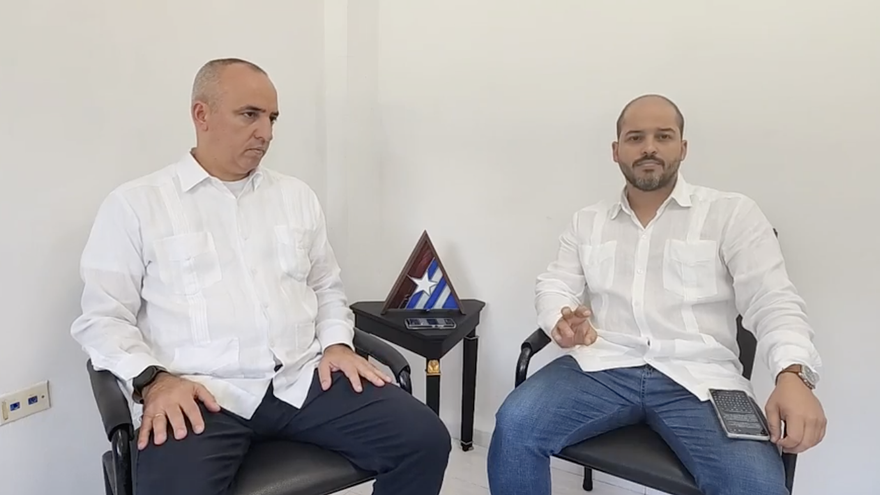
![]() 14ymedio, Madrid, 17 May 2023 — So many doubts seem to have been raised by the new migratory measures announced yesterday by the Ministry of Foreign Affairs, which this Wednesday will not only be devoted entirely to the issue of the official TV Roundtable program. Ernesto Soberón, director general of Consular Affairs and Cubans Residing Abroad, has also offered to respond to them in a direct transmission in the morning.
14ymedio, Madrid, 17 May 2023 — So many doubts seem to have been raised by the new migratory measures announced yesterday by the Ministry of Foreign Affairs, which this Wednesday will not only be devoted entirely to the issue of the official TV Roundtable program. Ernesto Soberón, director general of Consular Affairs and Cubans Residing Abroad, has also offered to respond to them in a direct transmission in the morning.
In an informal interview with another foreign official who was reading the questions to Soberón, he clarified that Cubans who have a passport with a validity of six years will have to keep that document, but that — like those who acquire the new document, from next July 1, with a validity of up to ten years — they will be exempt from the extension every two years.
“It would not be logical to tell Cubans that they have to do an additional procedure to put a sticker on the passport that says that the validity is extended,” said the director of Consular Affairs, who also said that anyone who wants to get a new passport for ten years can do it.
Regarding citizens who do not have an extended passport and have to travel before July 1, when all the measures come into force, Soberón warned that “the cases, which must be punctual, will be analyzed in detail to find a solution.”
Another of the issues raised with the official concerned the “equalization” of the time spent on the Island of Cubans living abroad and their foreign relatives. To this, Soberón recalled that until now, those relatives had a maximum stay of six months, and that from now on it will be one year.
As for the requirement of the use of the Cuban passport to enter the Island for “emigrants” from before January 1, 1971, the director of Consular Affairs denied that it was a penalty. “I have seen opinions on the networks that a privilege is eliminated; quite the contrary,” he said, arguing that “what we are looking for with this measure is to eliminate the need for a Cuban to ask for an entry permit every time he comes to Cuba.” To get their Cuban passport, he continued, “facility will be granted for a year” to all citizens, without detailing how that would work.
“We are also seeking to eliminate differences between categories of Cubans,” he insisted, and he repeated another message: “The will of our Government to continue developing a policy of strengthening ties with Cubans abroad remains unchanged.”
To demonstrate that President Miguel Díaz-Canel’s new measures show “continuity,” he explained that “Fidel initiated the dialogue of 1978,” which granted legal travel for Cuban exiles to the Island, and that Raúl Castro approved the “deeper update of the Cuban migration policy” for January 2013. He did not mention at any time the possibility maintained by the authorities of denying entry to any Cuban who has criticised the regime or the number of those who are “regulated*” and not allowed to leave the country.
*Translator’s note: “Regulated” is the term used by the Cuban government to classify Cubans who are forbidden to travel. Frequently, individuals have not found out they are ’regulated’ until they arrive at the airport with their ticket to leave.
Translated by Regina Anavy
____________
COLLABORATE WITH OUR WORK: The 14ymedio team is committed to practicing serious journalism that reflects Cuba’s reality in all its depth. Thank you for joining us on this long journey. We invite you to continue supporting us by becoming a member of 14ymedio now. Together we can continue transforming journalism in Cuba.
